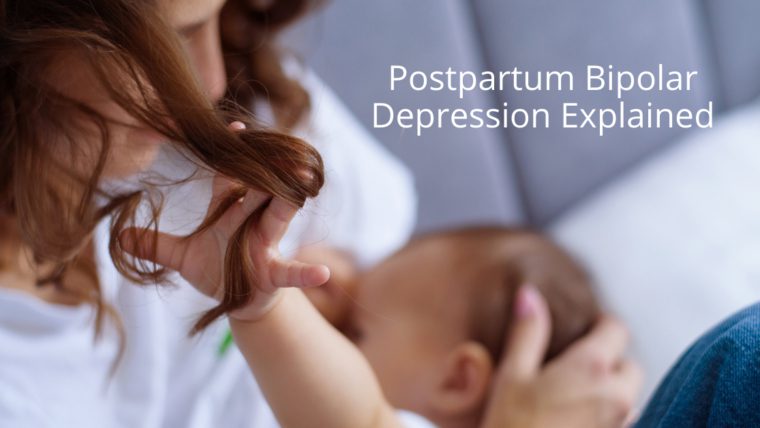Maternal depression is a serious condition that affects many women during and after pregnancy. Understanding the early signs of maternal depression can help in seeking timely treatment and support. Early detection is crucial for the well-being of both the mother and the baby, as untreated depression can lead to numerous challenges and complications.
This type of depression is distinct from temporary mood swings or baby blues, which are common after childbirth. Maternal depression is characterized by persistent feelings of sadness, hopelessness, and a lack of interest in activities that were once enjoyable. Recognizing these feelings early on can lead to more effective intervention and support.
Several factors contribute to the onset of maternal depression. Hormonal changes, lack of support, and previous mental health issues are some key contributors. By becoming aware of these elements and knowing what to look for, you can better navigate this challenging time and find the help you need. The journey to recovery involves understanding, support, and the right treatment options.
Recognizing the Symptoms of Maternal Depression
Identifying the early symptoms of maternal depression is crucial for seeking timely help. The symptoms can vary but often include persistent feelings of sadness and a lack of interest in daily activities. These feelings extend beyond temporary mood swings or the baby blues, lasting more than two weeks and affecting daily functioning.
Key symptoms to look for include:
- Persistent Sadness: Feeling sad or empty most of the day, almost every day.
- Loss of Interest: A noticeable lack of interest in activities that were once enjoyed.
- Changes in Sleep Patterns: Difficulty sleeping or sleeping too much.
- Fatigue: Persistent tiredness that doesn’t improve with rest.
- Appetite Changes: Eating significantly more or less than usual.
- Difficulty Concentrating: Struggling to focus or make decisions.
- Feelings of Worthlessness or Guilt: Consistently feeling inadequate or blaming oneself unnecessarily.
- Physical Symptoms: Unexplained aches, pains, or digestive problems that do not ease with treatment.
If you or someone you know experiences these symptoms, it is important to seek professional help. Early recognition and intervention can significantly improve the outcome for both the mother and the baby.
Are You At Risk For Postpartum Anxiety Or Depression? Take The Quiz
Risk Factors and Causes of Maternal Depression
Understanding the risk factors and causes of maternal depression can help in prevention and early detection. Several elements can increase the likelihood of developing depression during or after pregnancy.
Common risk factors include:
- Hormonal Changes: Pregnancy and childbirth cause significant hormonal fluctuations that can affect mood.
- History of Depression: A personal or family history of depression or other mental illnesses.
- Lack of Support: Feeling isolated or unsupported by family and friends.
- Stressful Life Events: Experiencing significant life changes or stress, such as financial problems or domestic issues.
- Complications During Pregnancy: Health issues for either the mother or baby can contribute to depression.
- Low Self-Esteem: Negative self-perception or feelings of inadequacy as a mother.
- Previous Pregnancy Loss: A history of miscarriage or stillbirth can also be a risk factor.
Risk Factors for Postpartum Depression and How to Seek Support
Recognizing these risk factors can help in taking proactive steps to mitigate them. Support from healthcare providers, family, and friends can play an essential role in prevention. Awareness and education about these causes are the first steps toward addressing and managing maternal depression effectively.
How Maternal Depression Affects Mother and Baby
Maternal depression can have far-reaching effects on both the mother and her baby. For the mother, depression can lead to chronic sadness, fatigue, and difficulty bonding with the baby. These feelings can make everyday tasks seem overwhelming and reduce the mother’s ability to care for herself and her newborn.
The impact on the baby is also significant. Babies rely on their mothers for emotional and physical support, and maternal depression can interfere with this crucial bonding process. Potential effects on the baby include:
- Delayed Development: Infants may experience delays in cognitive and emotional development.
- Behavioral Issues: Children of depressed mothers may exhibit more behavioral problems as they grow older.
- Attachment Problems: The lack of strong bonding can lead to issues with attachment and trust.
- Increased Stress: Babies can also experience higher levels of stress, which can affect their overall health and development.
Addressing maternal depression not only improves the mother’s well-being but also ensures the baby grows in a supportive and nurturing environment. Early detection and treatment are essential for both the mother’s and the baby’s healthy development.
Effective Treatment and Prevention Methods
Addressing maternal depression involves a combination of treatments and preventive measures. Effective treatment usually includes therapy, medication, and support from healthcare providers and loved ones. Here are some key treatment and prevention methods:
- Therapy: Cognitive-behavioral therapy (CBT) or counseling can help mothers understand and manage their depression.
- Medication: Antidepressants may be prescribed, but it’s essential to discuss the risks and benefits with a healthcare provider.
- Support Groups: Joining a support group with other mothers experiencing similar issues can provide emotional support and reduce feelings of isolation.
- Healthy Lifestyle: Regular exercise, a balanced diet, and sufficient sleep can improve overall well-being and mood.
- Education: Learning about maternal depression can help mothers recognize symptoms early and seek help promptly.
- Social Support: Building a strong support system of family and friends can provide practical and emotional assistance.
Preventive measures include regular mental health check-ups during pregnancy and postpartum, open communication with healthcare providers, and preparing for the potential challenges of motherhood. By taking proactive steps, we can reduce the risk and impact of maternal depression.
Understanding Maternal Depression: Early Warning Signs to Look For
Maternal depression is a serious condition that affects many women, but with the right knowledge and support, it is manageable. Recognizing the symptoms early, understanding the risk factors, and seeking timely treatment are crucial for the well-being of both the mother and her baby. By focusing on awareness, prevention, and effective treatment methods, we can create a supportive network for mothers facing this challenge.
If you or someone you know is struggling with maternal depression, don’t hesitate to seek help. At the Postpartum Depression Alliance of Illinois, we are committed to promoting awareness and providing resources for maternal mental health. Your mental health is important, and our volunteers are here to help!




